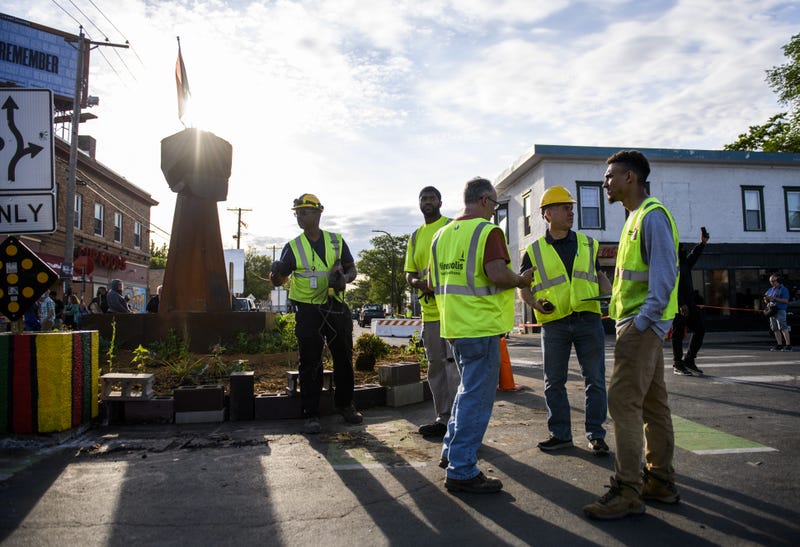
Minneapolis City Council Vice President Andrea Jenkins spoke with News Talk 830 WCCO’s Chad Hartman about the plan for 38th and Chicago Avenue -- known as George Floyd Square -- and the rise in violence throughout the city.
Jenkins shared that the now infamous intersection is about “80%” open as cars and traffic has begun to move through once again.
“You know things are starting to reconnect,” Jenkins said.
Amid the reopening, Jenkins and other city leaders have received 24 demands from those in the community who have been overseeing George Floyd Square and pushing back against the city’s efforts to reopen the intersection.
For Jenkins, these demands are nothing new.
“I have been working towards justice and racial equity, many of the things that are delineated in the 24 demands, pretty much all of my life,” Jenkins said.
Along with the demands, Jenkins is also looking to create homeownership and job training opportunities for young people in the community and also help small businesses. One thing spoken about earlier this month when the city tried to open the intersection for the first time was the struggle local businesses in the area were having.
“There is no conflict with the 24 demands,” Jenkins said. “Our responsibility as a community [is] to really create a space to learn, to listen, to heal, to come together to discuss these really challenging issues in our communities around institutional racism. I really want 38th and Chicago to be that epicenter.”
However, there are some demands that Jenkins says are unrealistic, like firing four people from the BCA or getting rid of Mike Freeman, who is an elected official. The conversations with Mayor Jacob Frey, Jenkins, and other city officials have been held with many throughout the community, not any specific person.
“Some of them are aspirational, and some of them are very concrete, and we intend to work with the community,” Jenkins said.
Hartman asked if the police would be able to get into George Floyd Square right now; Jenkins said she believes they would be able to.
When it came to the rise in violent crime throughout the city, Jenkins talked about how she believes many of the problems facing the city are coming from the “run amock capitalism” that has created a “huge” imbalance.
“We can now see that as place start to reopen, there’s this labor shortage,” Jenkins said. “People are saying ‘I’m not willing to come back and work for these wages where I can’t even take care of myself.’
In the very short term, we need to be addressing the violence on our streets through as many ways as we can with alternative community safety strategies as well as including the police in those efforts.”
Jenkins did not share who she thinks will be the Minneapolis Mayor one year from today but did say she thinks Frey has done the best he could.
“I think Mayor Frey has done as well as probably anybody could have given the enormously challenging issues we have been dealing with,” Jenkins said.
As for now, Jenkins wants whoever is the mayor in a year to be ready to work.
“Any mayor that we have one year from now is going to have to come together and work with the council and the community to move this city forward.”
